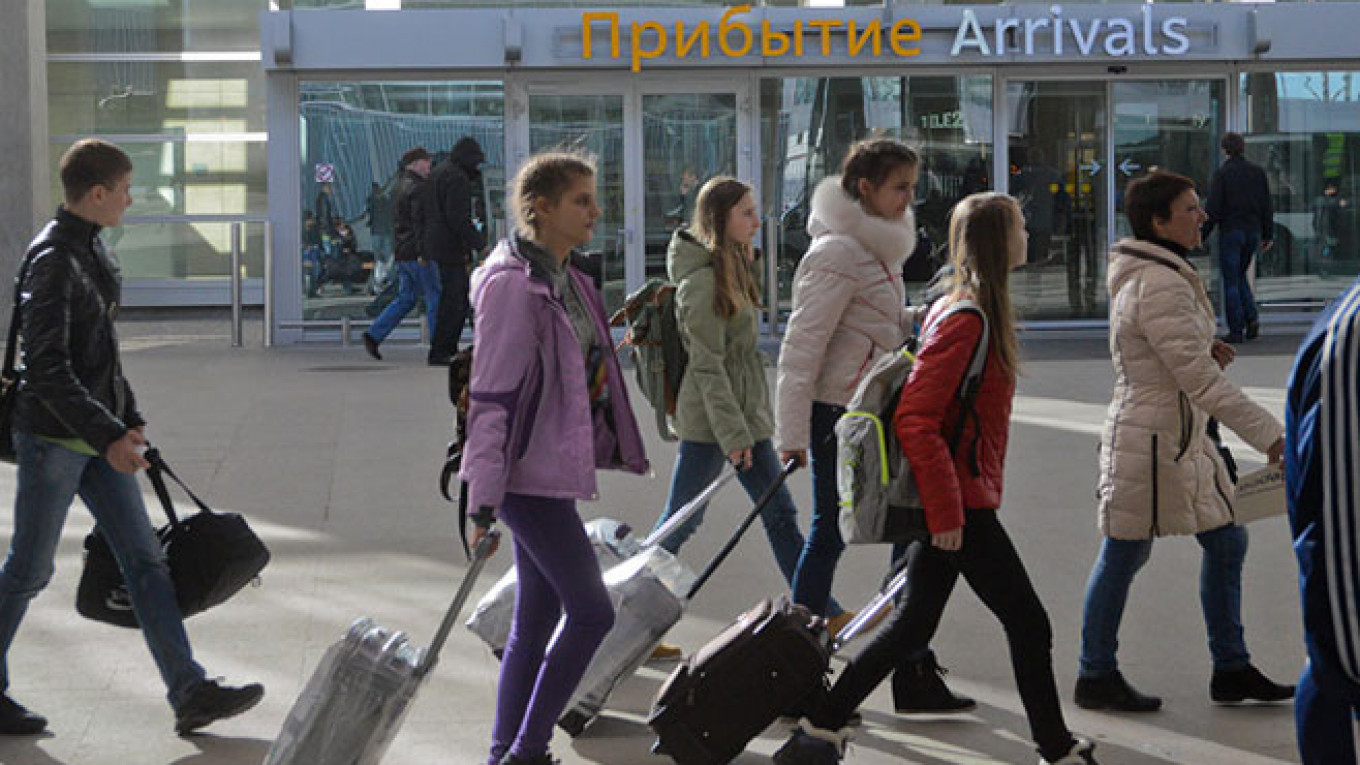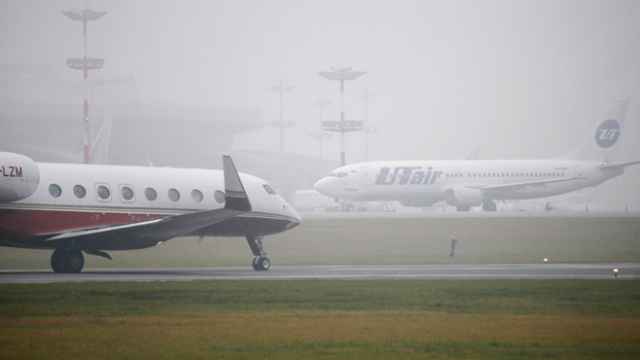The loss of foreign travelers is posing a thorny problem for Moscow hotels, whose livelihood depends on a steady stream of foreign tourists and businesspeople, the Vedomosti newspaper reported.
Hotel occupancy in Moscow fell to about 60 percent in the first three quarters of the year, its lowest level since 2011, analysts polled by the newspaper said. This is a decline of 7.4 percent, market analysts at consultancy Cushman & Wakefield told the newspaper, or even 9 percent, according to analysts at Jones Lang LaSalle (JLL).
The drop is largely due to a decline in the number of foreign guests, who typically account for up to 80 percent of Moscow hotels' occupancy, Marina Smirnova, head of the hotel business and tourism department at Cushman & Wakefield, told Vedomosti last week.
Tourism has been struck by negative media coverage and international sentiment over Russia's role in the Ukraine crisis, while business travel is down as European companies put the brakes on investment in Russia.
The summer was particularly hard for the industry, with occupancy rates in Moscow dropping 17 percent compared to 2013, David Jenkins, head of the hotels and hospitality group at JLL, said in a press release.
"Many foreign tour groups that had provided us with a stable flow of guests during the holidays decided not to travel to Russia," Alexis Delafour, the regional director of Accor Hotel Services for Russia, told Vedomosti.
In July, a Malaysia Airlines passenger jet was shot down while flying over territory held by Russia-backed separatists in eastern Ukraine. The event launched a wave of sanctions from the U.S. and EU, as well as Russian counter-sanctions in the form of bans on select Western food imports.
The autumn was marked by a gradual decline in the number of European businessmen, typically the industry's main clients, Delafour added.
The upscale segment was hit the hardest in the first three quarters, with revenue per room dropping 14 percent for the year. Less expensive hotels fared better, according to JLL.
A Message from The Moscow Times:
Dear readers,
We are facing unprecedented challenges. Russia's Prosecutor General's Office has designated The Moscow Times as an "undesirable" organization, criminalizing our work and putting our staff at risk of prosecution. This follows our earlier unjust labeling as a "foreign agent."
These actions are direct attempts to silence independent journalism in Russia. The authorities claim our work "discredits the decisions of the Russian leadership." We see things differently: we strive to provide accurate, unbiased reporting on Russia.
We, the journalists of The Moscow Times, refuse to be silenced. But to continue our work, we need your help.
Your support, no matter how small, makes a world of difference. If you can, please support us monthly starting from just $2. It's quick to set up, and every contribution makes a significant impact.
By supporting The Moscow Times, you're defending open, independent journalism in the face of repression. Thank you for standing with us.
Remind me later.






